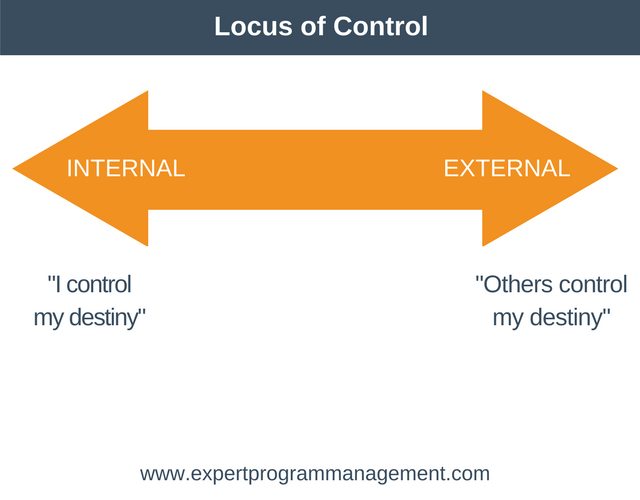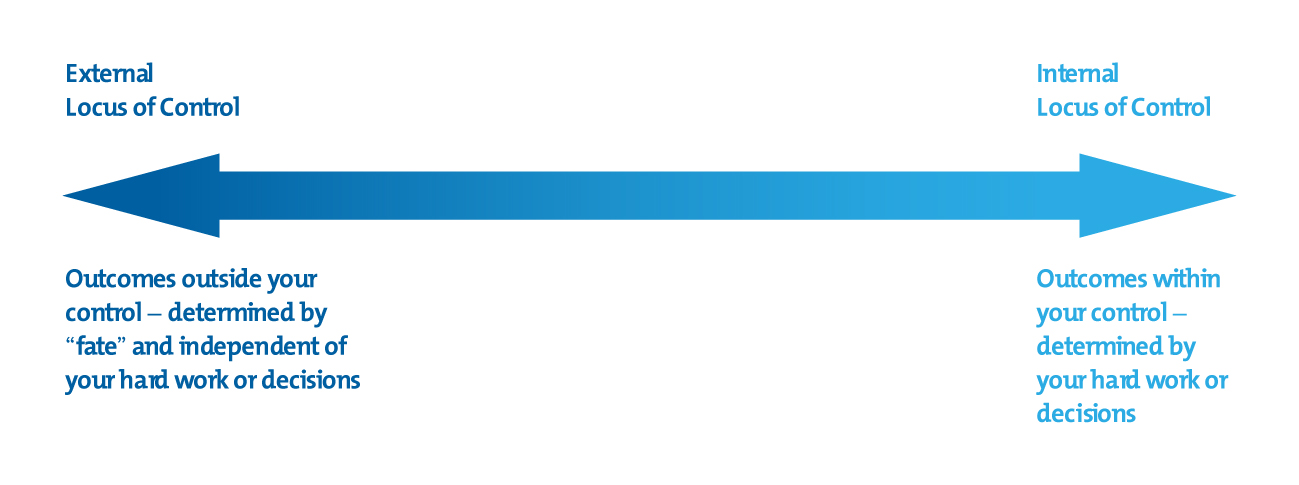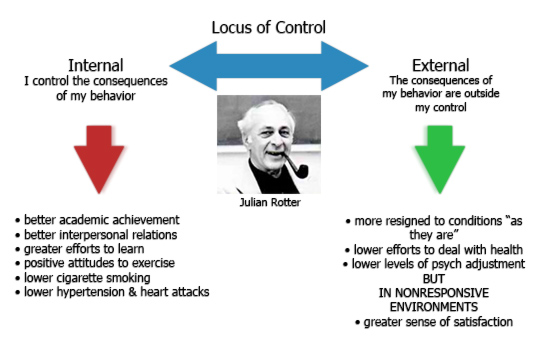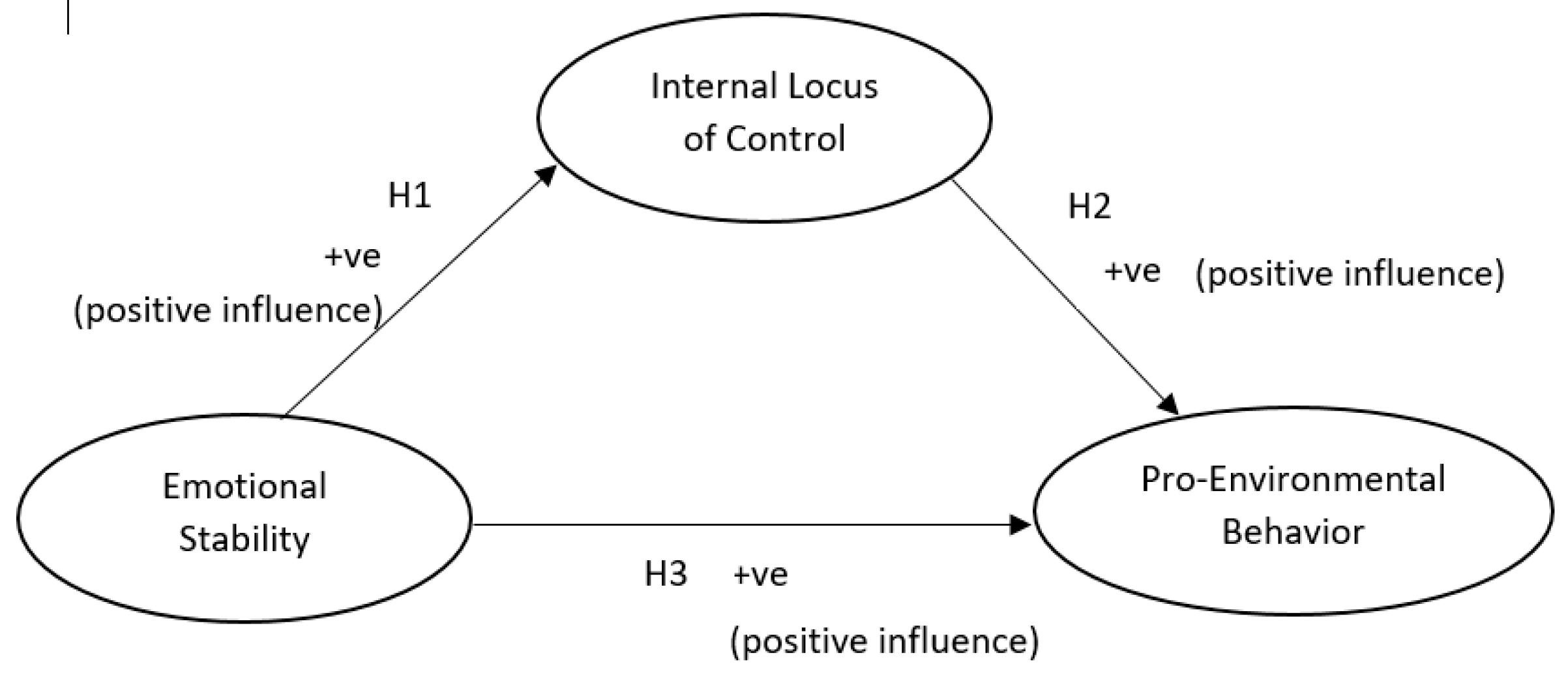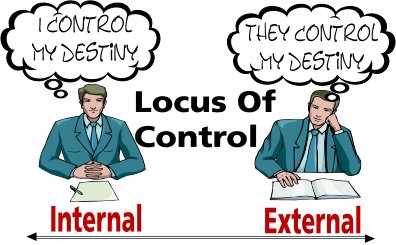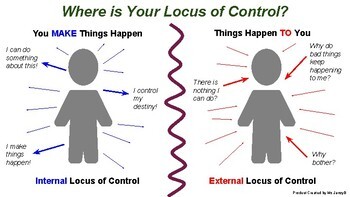What Is Internal Locus Of Control In Psychology

A locus of control orientation is a belief about whether the outcomes of our actions are contingent on what we do internal control orientation or on events outside our personal control external control orientation explained psychologist philip zimbardo in his 1985 book psychology and life.
What is internal locus of control in psychology. When a person believes that he or she is able to act so as to maximise the possibility of good outcomes and to minimise the possibility of bad outcomes he is said to have internal locus of control. Brian wins a promotion at work. Here are a couple of examples to help you understand. That success as well as failure is a result of our own actions and that positive change therefore is up to the individual to make happen.
The lesson stated some positive and negative impacts for both an internal locus of control and an external locus of control. Internal locus of control. In the locus of internal control the cause of success or failure is located or perceived by the person as something internal to him such as his skills and effort dedicated to each task. Use the internet to research locus of control reading several articles.
Internal locus of control. If a person has an internal locus of control that person attributes success to his or her own efforts and abilities. 1 internal locus of control 2 external locus of control. An internal locus of control means you place the power and the burden of responsibility firmly in your own hands.
Someone with an internal locus of control will believe that the things that. An internal locus of control is the belief that our actions have a direct effect on the outcomes in our life.



